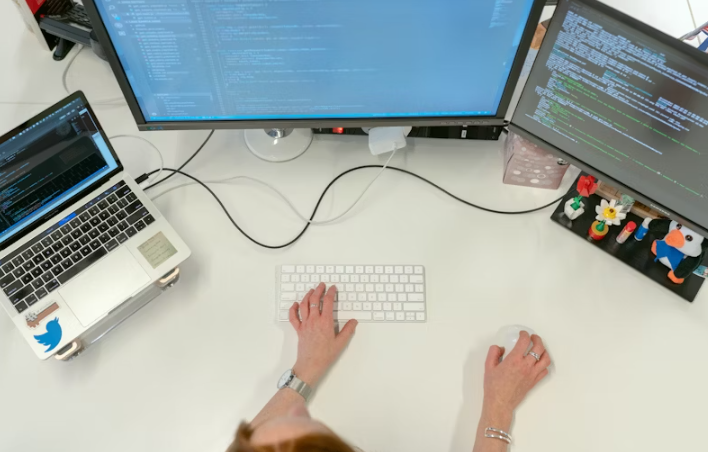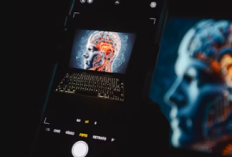Artificial Intelligence Coding Assistants Making Developers Obsolete?

Female software engineer codes at her desk with computers-ThisisEngineering-https://unsplash.com/
Artificial Intelligence Coding Assistants Making Developers Obsolete?
The hum of keystrokes has long been the soundtrack of progress in the tech world. But lately, that rhythm feels... different. Lines of code appear on screens faster than ever — not from a human’s hands, but from an algorithm that anticipates the next function before it’s typed. The rise of AI coding assistants has sparked a question that once seemed absurd: are human developers becoming replaceable?
The Quiet Revolution Inside the IDE
For years, developers relied on autocomplete to speed up syntax. But now, AI-powered assistants have crossed the threshold from suggestion to creation. Tools like GitHub Copilot, ChatGPT, and Amazon CodeWhisperer don’t just finish sentences — they generate entire modules, optimize algorithms, and even write documentation with human-like fluency. What began as a convenience has evolved into a silent revolution inside every Integrated Development Environment (IDE).
In one corner of the web, developers joke that their “pair programmer” now runs on cloud credits. In another, serious debates unfold about skill erosion. The question isn’t just whether AI can write code — it’s whether it should.
The Anatomy of an AI Programmer
Modern AI coding assistants are trained on massive datasets — billions of lines of open-source code, forum discussions, and documentation. They learn patterns of logic, structure, and problem-solving in ways reminiscent of how humans learn through repetition and imitation. When a developer begins typing, the AI doesn’t simply look at keywords; it predicts intent.
“It’s like working with a colleague who already knows every library, every method, every bug you’ve ever forgotten,” says Marcus Ito, a full-stack engineer at a fintech startup. “But the colleague never sleeps.”
Productivity Meets Ethical Dilemma
For many developers, AI assistance has become indispensable. Teams report writing code up to 40% faster, with fewer syntax errors and improved code readability. AI can explain complex snippets, refactor legacy code, and even generate unit tests in seconds. The boost in productivity feels intoxicating — until you realize how much control has quietly shifted to the machine.
There’s also the uncomfortable question of ownership. If AI-generated code is trained on open-source material, who owns the result? Legal frameworks lag behind, and developers worry about copyright violations slipping unnoticed into production environments. Ethical coding, once a straightforward principle, is now tangled in questions of data transparency and intellectual property.
The Apprenticeship Problem
Traditionally, junior developers learned by doing — debugging, failing, and slowly building intuition. But what happens when AI handles the “boring parts” of the job? Some educators warn that new programmers risk becoming “AI supervisors” rather than engineers. They may learn how to prompt, but not how to solve.
“We’re raising a generation of developers who may never understand why their code works,” says Linda Zhao, professor of computer science at MIT. “That’s dangerous, because true engineering isn’t about writing lines of code — it’s about understanding systems.”
From Tool to Collaborator
Despite the fears, the reality is more nuanced. Most professionals view AI assistants not as threats, but as collaborators. They handle repetitive logic, freeing humans to focus on architecture, creativity, and problem design. In a sense, AI is becoming to programming what calculators became to mathematics — an accelerator of thought, not its replacement.
Developers often describe a strange relationship with their AI companions. The more they use them, the more they learn to communicate in precise, structured ways. Writing a good prompt feels like giving instructions to a junior developer — clear, contextual, and with a bit of trust. The art of programming is evolving into the art of collaboration.
The Unseen Bias in Machine Logic
But AI is not neutral. Every line it writes carries the fingerprints of its training data. Biases, outdated practices, or security vulnerabilities can sneak in silently. A developer who blindly accepts AI-generated code may inherit unseen flaws — a ticking time bomb in production systems.
As machine-generated code grows in volume, so does the need for code review with human judgment. The AI may understand syntax, but it lacks moral reasoning. It doesn’t know when to prioritize privacy over performance, or when a feature might harm users. That’s where human empathy remains irreplaceable.
The Rise of the Prompt Engineer
A new role has quietly emerged in the developer ecosystem: the prompt engineer. These are professionals skilled at “teaching” AI through carefully structured inputs. They understand both coding logic and linguistic nuance, acting as translators between human creativity and machine efficiency. Ironically, as AI takes over coding tasks, it has created new technical jobs in return.






